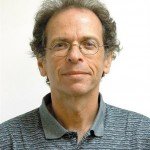Joseph Kellerstein, ND
Andropause, or male ‘menopause’, is caused by an age-related decline in active circulating testosterone. News of andropause has been in the literature for over half a century. This condition may contain disorders relating to:
- cardiovascular issues
- osteoporosis and sequelae
- hair loss (especially pubic and axillary)
- atrophy of the testes
- erectile dysfunction
- depression and mood disorders stemming especially from issues of performance or role change
What feels nice about this concept is that we guys no longer need to feel neglected by those marketing hormones and by the anti-aging people. We can now claim equal rights to mood swings. Okay, it does give us a framework through which to approach a lot of distressing issues facing men. Certainly I have met patients who feel increased energy, better mood and improved erectile issues after having their hormone levels stimulated or supplemented.
My concern is the tendency I see in our profession to become less interested in holism and more pulled toward ‘green allopathy’. A defined syndrome complete with cause and target of therapy can be very tempting. Our prescribing may become one that’s pointed and reductionist.
In comparison, homeopathic thinking certainly takes the syndrome into account, but uses the pattern of symptoms as a unique syntax defining the remedy and the disease. Our target is not a single hormone, but the whole complex of altered feeling and function simultaneously. Patterns seen in the language of nature (proving) are also those found in disease. In a word, homeopathy is more a systems approach.
Consider the following brief remedy pictures applicable to andropause:
Lycopodium
His psychology is often one of ‘I want to be seen as important and high up in the group’. Being viewed as powerful, accomplished is a high value. Any lowering of status is mortifying. Critical and domineering as a boss. The threat of younger intelligent aspirants to high position is difficult. Depression, irritability and anticipatory anxiety are frequent. Physically they can be spare, sallow with moles and age spots. Weight loss is evident, especially in the upper chest and infraclavicular fossa, while the middle is well padded betraying blood sugar issues. These people are quite chilly, yet enjoy cool air and feel oppressed in a warm stuffy environment. There is often performance anxiety with impotence. The genitals may seem cold and there may indeed be atrophy. Where Lycopodium is indicated, expect some digestive issue, commonly a rapid fullness on eating due to flatulence.
Agnus Castus
Depression and self-reproach over chances in life that were ‘blown’ and a kind of envy regarding those considered successful. “He sometimes feels as if he were nobody, and would rather be dead than have that feeling; when possessed by that feeling, he has no courage to undertake anything; and when free from it he feels exalted, would like to read like an orator, etc.” [Allen] Boasting about sexual performance, alternating with self-reproach and the feeling he has achieved nothing. Agnus-c. “is especially useful in those advanced in years, who in their youth have carried sexual indulgence to extreme and who, while physically impotent, are mentally as excitable as in early life”. Fixed idea of approaching death, not of immediate death, as with Acon. Easy spraining of joints [ankles]. Straining of muscles and tendons from lifting. Emission of prostatic fluid during and after stool, during urination. Tired and swollen sensation in thighs towards evening. Coldness of the knees and of the external male genitals.
Selenium
Great dullness, with complete insensibility and indifference to his surroundings. Very forgetful, especially in business; during slumber, however, he remembers all he had forgotten. Drafts cause headache, pain in limbs and hot weather causes weakness. The hotter the body is, the weaker he is. Strength rises as sun sinks; loquacity, fond of conversing in evening. Imagines drafts of air. Loss of hair of the whole body [head, eyebrows, whiskers, pubic hair]. Pulsation in all parts of body, especially abdomen, after eating; prevents sleep. Erections slow, insufficient, semen emitted too rapidly and with long-continued thrill, weak, ill-humored after an embrace, weakness in loins. Semen thin, without normal odor. Lewd thoughts, but physically impotent. Prostatic juice oozes while sitting, during sleep, when walking and at stool.
Homeopathy asks the totality of symptoms to call for a remedy. Allopathy defines a syndrome with a pointed cause and target. Do we utilize a systems approach or move to the other end of the spectrum towards a reductionist model? Both have a place. As naturopathic physicians, we are challenged to maintain both views in a creative tension to the greatest benefit to the patient.
 Joseph Kellerstein, ND teaches a post-graduate program in homeopathy through www.homeopathyby the book.com.
Joseph Kellerstein, ND teaches a post-graduate program in homeopathy through www.homeopathyby the book.com.


